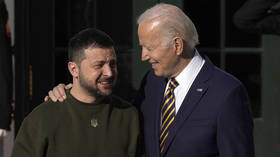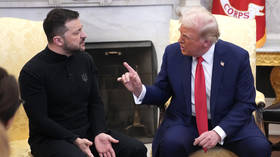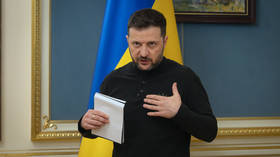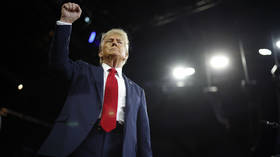Neurologists offer explanation for political polarization
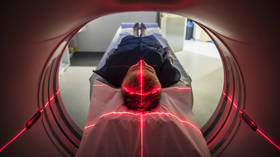
The sheer level of political polarization witnessed in many societies these days may be down to the neurological makeup of those involved, a fresh study has indicated. Researchers believe the fact that different people perceive the very same event or notion in profoundly dissimilar ways may be a sign that their brains function differently.
The study published in Science Advances in early February, started with the premise that previous theories were missing some key factors when they postulated that political polarization is the result of people consuming information from selective news outlets. A team of researchers from Brown University in Providence, Rhode Island suggested the formation of entrenched political opinions may start at an earlier stage.
To prove their point, the US neuro-scientists recruited a group of 44 individuals, with an equal representation of liberals and conservatives.
Participants were shown single words, such as “immigration” or “abortion” and asked to determine whether the word was political or nonpolitical. After that, they were asked to watch a “neutrally worded news clip on abortion and a heated 2016 Vice-Presidential Debate on police brutality and immigration.” Their brains were undergoing functional magnetic resonance imaging (fMRI) during the experiment.
Having studied their brain activities in response to various external stimuli, the researchers concluded that “individuals who share an ideology” have their neurons react to politically charged words in a similar way. According to the study, their brains also respond to inflammatory political videos in a strikingly uniform manner.
The study noted that the effect is particularly prominent when members of opposing political camps are presented with abstract concepts or things which have multiple definitions, such as the words “freedom” and “American.”
“Neurally, this would be reflected by conservatives sharing one pattern of neural activity when processing” a given word, “and liberals exhibiting a different neural pattern,” the researchers said.
Oriel FeldmanHall, an associate professor of cognitive, linguistic, and psychological sciences, and one of the study’s authors, explained: “You can think of it as the brain representing the word by firing neurons in a certain way.”
The process could be described as a “neural fingerprint” that encodes the concept of that word within the brain,” she added.
According to FeldmanHall, this “mechanistic account” of neurological factors behind political polarization could lead to the discovery of potential ways of counteracting them.





